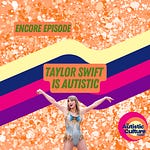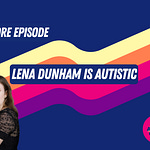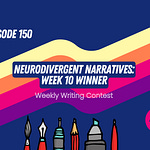An episode with all the right ingredients!
In Episode 99 of The Autistic Culture Podcast, Matt and Angela, joined by special guest Melanie Deziel, delve into the legendary Martha Stewart and the fascinating autistic-coded traits that set her apart.
Here’s what’s in store for today’s episode:
Inspired by the new Netflix documentary, we explore traits in Martha Stewart that suggest possible autism—and why speculating on public figures’ neurodivergence can be both ethically complex and culturally important.
We unpack how autism is not a deficit, but a culture with its own communication styles, values, and strengths—including precision, pattern recognition, and justice sensitivity.
From her rigid routines and direct speech to her obsession with detail and high standards, Martha’s behaviors align with common autistic traits.
We discuss the misogynistic media treatment she faced, how her passion for sharing knowledge mirrors autistic info-dumping, and how her post-prison transformation revealed a more authentic self.
Plus, we dive into the broader issue of how neurodivergent public figures—like Martha Stewart and Taylor Swift—are often misunderstood and unfairly vilified in the media.
Melanie Deziel is a keynote speaker and award-winning branded content creator who is passionate about helping individuals, teams, and organizations unlock their creative potential and organize their creative efforts.
She is the Co-Founder of The Creator Kitchen mastermind for creatives and the author of both “The Content Fuel Framework: How to Generate Unlimited Story Ideas” and “Prove It: Exactly How Modern Marketers Earn Trust.”
“You’re autistic way before you get a medical diagnosis. Your parents were autistic, your grandparents were autistic, and your great-grandparents were autistic. You don’t need some neurotypical with a degree to come along and pronounce you autistic. “ - Matt Lowry LPP
“That’s always my favorite - the diagnostic domino effect. After my diagnosis, my mom is going through the paper and she’s like, ‘that’s not weird, I did that. That’s not weird, I did that.’ And I was like, have I got news for you, mama? Welcome.” - Dr Angela Kindgon
“Her whole thing, which was setting off my justice sensitivity alarms, was that people who don’t have a lot of money also deserve to live well. They also have taste. They also want their homes to be beautiful. She got a lot of flack for that decision, but she saw the gap in the marketplace. She’s like, ‘just because someone doesn’t have a lot of money, doesn’t mean they don’t like nice pots and pans or want beautiful curtains or whatever else.” - Melanie
“It’s only the people who have sort of passing interactions with her and take one offhanded comment and they’re like, ‘she’s horrible, she’s a bitch, she’s icy, she’s cold’, whatever. But the people who are around her say like, no, she’s deeply caring. She loves the people around her. She just has high expectations and is very straightforward in the way she speaks. She will say to you, ‘I appreciate this thing you’ve given me. It’s poorly constructed. Let’s fix it.’ She’s just very straightforward, and you’re like, ‘I didn’t mean to offend you. I thought we were all aware of this reality right in front of us.” - Melanie
In this episode, we take a deep dive into the world of Martha Stewart, exploring how her traits align with autistic characteristics and the media’s often skewed perception of her. From her intense need for control to the challenges she faced in a world that misunderstood her, we break down the real Martha Stewart—and the misconceptions surrounding her. Join Matt, Angela, and special guest Melanie Deziel as they discuss how her unique personality and approach to life shaped her empire, and how she became a target of unfair media scrutiny. Have you noticed these traits in Martha or other public figures? Share your thoughts with us using #AutisticCultureCatch on social media!
Show Notes:
Netflix Martha Stewart Netflix Documentary link - please find
https://www.melaniedeziel.com/minis
https://www.melaniedeziel.com/advocacy
Related Shows:
Lessons in Chemistry is Autistic
Follow us on Instagram
Find us on Apple Podcasts and Spotify
Learn more about Angela at AngelaKingdon.com
Our Autism-affirming merch shop














